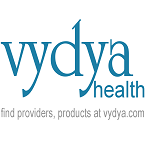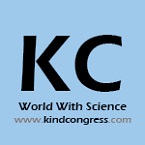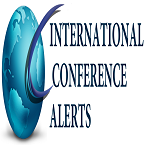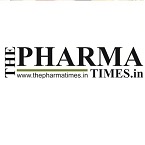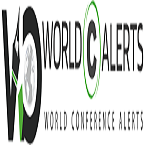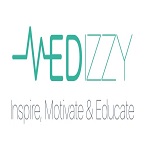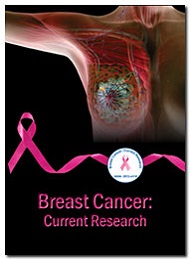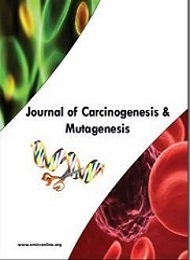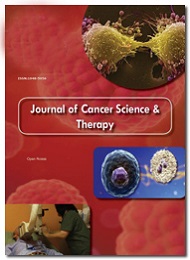Theme: Exploring New Frontiers in Breast Cancer and Therapies
Breast Cancer 2023
Breast Cancer Conferences | Cancer Conferences | Breast Cancer Congress
Welcome to the 13th World Congress on Breast Cancer 2023 Scheduled during May 02-03, 2023 in London, UK.
Breast Cancer 2023 Congress in London, UK has been designed in an interdisciplinary manner with a multitude of tracks to choose from every segment and provides you with a unique opportunity to meet up with peers from both industry and academia and establish a scientific network between them. We cordially invite all concerned people to come join us at our Breast Cancer Congress and make it successful by your participation.
Breast Cancer 2023 is one of the Worlds largest Congress on Breast Cancer and Therapies. Radiologists, Radiation Oncologists, Radiation Therapists, Medical Oncologists and Breast Care Nurses along with researchers, educators, administrators, policy makers and students expected to attend the conference. Breast Cancer 2023 promises to be an exciting and rewarding opportunity to learn together.
We are honored to host high-profile Keynote Speakers from around the world as well as many concurrent oral and poster presentations i.e. robust scientific programs on key health issues and advances in Breast Cancer therapies from conference participants.
OUR OBJECTIVES
- To provide a platform for education, interaction and innovation
- To facilitate the breast cancer community to meet and discuss issues and challenges
- To update the community on recent results and concepts
- To critically review new information so that breast cancer specialists can integrate it into daily practice
- To promote academic skills in young specialists
WHO CAN ATTEND
- Breast Cancer Surgeons
- Breast Cancer Pathologists
- Radiation Oncologist
- Radiation Therapist
- Breast Care Nurse
- Reconstructive (plastic) Surgeon
- Healthcare Associations and Societies
- Breast Cancer Faculty
REASONS TO ATTEND
- It is a truly multidisciplinary conference.
- It enables deep engagement from all specialists including patients and patient advocates.
- It’s a way to interact with peers, to build your professional network and to create friendship with delegates from all around the world.
Relevant Conferences: Breast Cancer Conferences 2023 | Breast Cancer Conferences Europe | Breast Cancer Congress | Cancer Conferences | Breast Cancer Meetings | Breast Cancer 2023 | Breast Cancer Conferences USA | Breast Cancer Conferences Asia | Breast Cancer
3rd Global Experts Meeting on Frontiers in Breast Cancer and Therapy during Apr 17-19, 2023 at San Francisco, USA | 8th International Webinar on Breast Cancer and Womens Health on Jan 19-20, 2023 | Webinar; 12th World Breast Pathology and Breast Cancer Conference on August 01-02, 2023 at Dubai, UAE; BREAST PATHOLOGY & CANCER | AUGUST 01-02, 2023 | DUBAI, UAE; 18th St.Gallen International Breast Cancer Conference 2023 from 15 – 18 March 2023 in Vienna/ Austria; ESMO BREAST CANCER 2023 | 11-13 May 2023 at Berlin, Germany; ESTRO 2023 | 12 May 2023 - 16 May 2023 Vienna, Austria; 42nd Congress of the European Society of Surgical Oncology | 25-27 October 2023, Florence, Italy; Advanced Breast Cancer Seventh International Consensus Conference | 9-11 November 2023, Lisbon, Portugal; 11th European Congress on Breast Cancer, Women's Health and Therapeutics | April 27-29, 2023 | Amsterdam, Netherlands; 7th World Congress on Controversies in Breast Cancer | September 7-9, 2023 at Dubai, UAE; Advanced Breast Cancer Seventh International Consensus Conference | 9-11 November 2023, Lisbon, Portugal; The Third New Zealand Breast Cancer Symposium, 16-18 November, 2023 | Auckland, New Zealand; The Breast Cancer Trials 44th Annual Scientific Meeting from 26-28 July 2023, in Auckland, New Zealand; Global Summit on Breast Cancer, March 02-03, 2023, London, UK; 32nd Annual Interdisciplinary Breast Center Conference | March 24-28, 2023 at Las Vegas, NV; The UK Interdisciplinary Breast Cancer Symposium | 22 - 23 January 2024, ICC Birmingham; UK
Track 1: Breast Cancer Staging
Breast cancer staging describes how much cancer is in the body which is treated with chemotherapy, hormone therapy, and drugs. It has both medical and pathologic staging systems for breast cancer. The pathologic stage also called the medical stage is determined by examining tissue removed during an operation. If surgery is not conceivable, sometimes right away cancer will be given a clinical stage instead. Imaging tests like x-rays, CT scans, MRIs, ultrasound, and PET scans may also give information about how much and where cancer is in the body. In the system called TNM, every cancer is assigned a letter or number to describe the tumor, node, and metastases.
Track 2: Radiology
Radiologists are medical doctors that specialize in diagnosing and treating injuries and diseases using medical imaging procedures such as X-rays, computed tomography (CT), The nurses is involved in the care of patients before and after imaging or procedures, including administration of medications, monitoring of vital signs and monitoring of sedated patients magnetic resonance imaging (MRI), nuclear medicine, positron emission tomography (PET) and ultrasound.
Track 3: Breast Cancer Awareness
Breast cancer advocacy and awareness efforts are a type of advocacy. Breast cancer consciousness is an effort to raise awareness and reduce the stigma of breast cancer through education on symptoms and treatment whereas breast cancer advocates raise funds for more patient empowerment, better care, more knowledge, and by conducting educational campaigns or providing free or low-cost services. Breast cancer culture, at times called pink ribbon culture, the outgrowth of breast cancer advocacy, is the social movement that supports the larger women's health movement, socially aware, pro-woman individuals, businesses and governments to signal their support for women, health, and mainstream The environmental breast cancer drive suspects pollution as a substantial cause, possibly from medicine. Pesticides, plastics, and industrial runoff in groundwater.
Track 4: Breast Cancer Detection, Prevention and Diagnosis
Early detection is always better and can be done through screening methods. If family history is there for breast cancer, then one should go for the advice of a doctor. Screening methods are medical breast examination (doctors or nurses examine women's breasts for lumps), mammography, and other imaging techniques. If the lump is there in the breast it can be breast cancer. X-rays are taken to closely observe the breast cancer which is known as a mammogram. After lump detection or other sign mammogram is used.
Track 5: Breast Cancer Surgery
Most of the women suffering from breast cancer have to face breast surgery as a part of treatment. Different ins and outs are there due to which breast surgery is done: to remove cancer cells consist of breast-conserving surgery and mastectomy, to find whether cancer is spreading or spread already including a biopsy or axillary lymph node dissection, after removal of cancer for resorting the shape of the breast that is breast reconstruction. Surgery side effects are there.
Track 6: Male Breast Cancer Research
Men are having a small amount of breast tissue, during puberty in girls tissue grow and develops but in men, it doesn’t. As breast tissue is there in men additionally, they can also get breast cancer like in women. Most of the men are not aware of this and the treatment of breast cancer males is mostly delayed as compared to females because of unawareness. So many things are there that raise breast cancer in men like if any female in the family or close relative is having cancer, radiation exposure to the chest, Klinefelter's syndrome, etc. Symptoms of breast cancer are the same in men like women. Awareness should be there so that we can save our lives.
Track 7: Breast Cancer and Cell Biology
Cancer cells are very complex cells and it is challenging for clinicians to manage breast cancer therapy. Tumor cells are having different phenotypes and deregulated apoptotic and these characteristics are responsible for improper therapeutic response. For multidrug resistance events major role is played by membrane transporters, they are the cell’s first line of contact with anticancer drugs. So cell structure and biological properties of the cell leads to drug-resistant and lead to a decrease in the intracellular activity of drugs. Breast growth is regulated by the interaction between hormones and growth factors. Genetic changes in growth factor can lead to abnormalities. The immune system of host play a substantial role during breast cancer, breast cancer is a complex disease.
Track 8: Breast Cancer And Immunology
Immunotherapy improves the aftereffect of clinical treatment in breast cancer patients. Targeted treatment is the approach used to directly target tumor cells, side effects of immunotherapy can be decreased.
Track 9: Breast Cancer Nursing
Nurses play an important role during the treatment of breast cancer because they can help the patient to build physically and mentally. They can educate patients about risk factors, ways to reduce them. Nurses involved in breast cancer care have an impact on the early discovery of breast cancer, treatment, and they serve as advocates for women with the disease.
Track 10: Breast Cancer Management
Breast cancer management takes different approaches that depend on the physical and biological characteristics of the disease, age, overall health and personal preferences of the patient. There are 2 types of treatment classified into local therapy (surgery and radiotherapy) and systemic treatment (chemo-, endocrine, and targeted therapies). The mainstay of breast cancer management is surgery for the local and regional tumor, followed by a combination of chemotherapy, radiotherapy, endocrine therapy, and targeted therapy. Radiation treatment includes utilizing high-vitality X-rays or Gamma rays that target a tumor or post-surgery tumor site. Cryoablation trial treatments accessible for women with small or early-stage breast cancer. The rejuvenation of the breast after breast cancer surgery is included in holistic approaches to cancer management to address identity and expressive aspects of the disease whereas reconstruction can take place at the same time as cancer-removing surgery, takes to an inordinate length of time later so some women decide not to have reconstruction and they opt for a prosthesis instead. Epidemiologic risk factors vary by the hormone receptor expression of the breast cancer divided into preventable and non-preventable.
Track 11: Epidemiology of Breast Cancer and Risk Factors
Breast cancer incidence rates increase sharply with age, becoming substantial before the age of 50 years. Major risk factors that occur are during the premenopausal years, the rate of increase in incidence is common around the world, approximately 8%-9% per year, breastfeeding each child for less than 6 months, and physical inactivity, are each linked to an estimated 3% of female breast cancer cases. Some other factors include oral contraceptives; hormone replacement therapy, ionizing radiation, and diethylstilboestrol use in pregnancy are causes of breast cancer and lifestyle factors including overweight and obesity, alcohol and certain occupational exposures. Breast cancer, like other forms of cancer, can result from multiple environmental and hereditary risk factors like individual person's development, exposure to microbes, medical interventions, and dietary exposures to nutrients, energy and toxicants, chemicals from industrial, agricultural processes and from consumer products.
Track 12: Inflammatory Breast Cancer
One of the most aggressive types of breast cancer occurring in women of any age is inflammatory breast cancer. The typical presentation is rapid swelling, sometimes associated with skin changes, persistent itching rapid increase in breast size, redness and nipple retraction. It is often regarded as systemic cancer. Breast cancer is diagnosed by a biopsy where it confirms as malignancy Ultrasound is useful for looking at some breast changes, such as lumps or changes in women with dense breast tissue especially those that can be felt but not seen on a mammogram that are best breast cancer screening tests. All Inflammatory breast cancers start as Stage IIIB since they involve the skin but if cancer has spread to lymph nodes around the collarbone or inside the chest, its stage IIIC and cancer that has spread outside the breast and nearby lymph nodes it is stage IV.
Track 13: Mammography
Mammograms can help in saving lives by detecting breast cancer early. The women who are not having any sign and symptoms of breast cancer can also go for mammography, this is known as a primary mammogram. During screening mammogram, two or more X-rays pictures are taken of each breast. Micro calcification can be detecting using screening mammography that indicates the presence of Breast Cancer. A diagnostic mammogram can be used after screening mammogram to investigate the symptoms in details that are detected in screening mammogram. Mammography related controversies are also there because of False-positive results, over diagnosis, and overtreatment, False-negative results, Radiation exposure, etc. Screening mammogram and Diagnostic mammogram
Track 14: Diet and Lifestyle Effect on Breast Cancer
A healthy diet and maintaining weight can reduce the risk of breast cancer. Smoking during early adulthood and adolescence can increase the risk of breast cancer in the latter stage of life. Eating plant-based food and reducing the alcohol consumption helps in prevention of Breast Cancer. Physical activities particularly after menopause like cycling, walking, playing with children helps in reducing the risk of breast cancer. Breastfeeding also reduces the risk of breast cancer. Hormone replacement therapy, use the contraceptive pill can increase the menace of breast cancer. Pregnancy also affects breast cancer; women who are starting their family early are at lower breast cancer risk than the women who are giving birth at a late age.
Track 15: Breast Cancer Risk
According to the studies combination of factors are responsible for breast cancer risk. The main factor is age, most of the breast cancer cases noticed in women with age 50 or older, Genetic mutations are also risk factor behind breast cancer. Mutations in certain genes like BRCA1 and BRCA2 can go from one generation to other generation and it can increase the risk of breast cancer.
Track 16: Breast Cancer-Clinical Trials
Over the past 40 years, breast cancer treatment has greatly improved due to lessons learned through clinical trials. Clinical trials test the safety and benefits of new treatments as well as new combinations (or new doses) of standard treatments. They can also study other parts of care including risk reduction, diagnosis and screening. People volunteer to take part in clinical trials. Those who join help further the knowledge base that helps improve breast cancer care.
Track 17: Case Studies
A case study is a research strategy and an empirical inquiry that investigates a phenomenon within its real-life context. Case studies are based on an in-depth investigation of a single individual, group or event to explore the causes of underlying principles.
Europe: European society for medical oncology, European Cancer Patient Coalition, European Organization for Research and Treatment of Cancer, European Society for Radiotherapy and Oncology, European Society of Breast Cancer Specialists, European Society of Breast Imaging, European Society of Gynecological Oncology, European Society of Radiology, International Society of Geriatrics Oncology.
USA: American Cancer Society, Breast Cancer Research Foundation, National Breast Cancer Foundation, American Breast Cancer Foundation, United Breast Cancer Foundation, Hers Breast Cancer Foundation, Florida Breast Cancer Foundation, Triple Negative Breast Cancer Foundation, Breast Cancer Foundation of the Ozarks, Breast Cancer Patient and Advocacy Organizations, Breast Cancer Research Foundation of Alabama, International Breast Cancer Organization.
Asia: Asian Cancer Organizations and Resources, Asian Breast Cancer Society, Asian Cancer Foundation, Japanese Breast Cancer Society, The National Asian Breast Cancer Initiative, Breast Cancer Foundation, Japan Society of Clinical Oncology, Asian Breast Diseases Association, Japanese Society of Medical Oncology.
Breast Cancer Therapeutics Market size exceeded USD 25.5 billion in 2021 and is estimated to register around 8% CAGR between 2022 and 2028. The growing incidence of breast cancer is amongst the major factors stimulating the overall market growth. According to the International Agency for Research on Cancer (WHO), in 2020, the incidence of breast cancer was 2,261,419, accounting for approximately 11.7% of the total cancer cases globally.
Breast cancer therapeutics can be defined as the treatment or management of breast cancer using therapeutic approach & drugs such as the targeted therapy, chemotherapy, hormonal therapy, and other therapeutics. These therapeutics abduct the growth and multiplication of cancerous cells by disrupting certain proteins or DNA.
Implementation of breast cancer awareness and screening programs is set to prove beneficial for the business scenario
Initiation of breast cancer awareness and screening programs by the regional government authorities to curb the mortality rates associated with breast cancer is anticipated to prove conducive for the market statistics. Breast cancer therapeutics are increasingly effective while treating breast cancer and delivers more than 90% survival probabilities, especially when the disease is diagnosed at an early stage. Thus, in order to induce the practice of timely cancer screening for early diagnosis, several local government agencies regulate and offer breast cancer screening programs across numerous countries.
Moreover, adoption of breast cancer awareness campaigns by public organizations is projected to promote the education regarding breast cancer and breast cancer therapeutics. For instance, the National Breast Cancer Foundation initiated “October as a Breast Cancer Awareness Month”, a campaign to drive awareness concerning the impact of breast cancer. Such initiatives are expected to encourage the diagnosed breast cancer patients to opt for optimal breast cancer therapeutics, further driving the survival rate of breast cancer therapeutics.
The high incidence of breast cancer in the North America region is set to boost the regional business landscape
U.S. breast cancer therapeutics market is anticipated to surpass USD 15.8 billion by 2028. This dominant market share is attributable to several factors such as the high incidence of breast cancer, steadily rising disease burden, and presence of major market players among others. According to the Breast Cancer Organizations statistics, as of January 2022, breast cancer affects more than 3.8 million American women. The statistics indicate that in the year 2022, around 30% of newly diagnosed cancers among women are estimated to be breast cancer cases.
The Globolcan 2020 reported that the incidence of breast cancer was 253,465 cases in the U.S. Thus, the high incidence and prevalence of breast cancer inflicts significant mortality along with disease burden. The rising disease burden in the country is anticipated to promote the demand for breast cancer therapeutics. Furthermore, the presence of major market players and favorable reimbursement scenario for breast cancer treatment would drive the acceptance rate of breast cancer therapeutics. Thus, owing to the above-mentioned factors, the market growth in the U.S. is estimated to expedite in the coming years.
Breast Cancer 2022
We are thankful to all our wonderful Speakers, Conference Attendees, Students and Associations for making Breast Cancer 2022 Conference the best ever!
12th World Congress on Breast Cancer was held on March 14-15, 2022; Webinar based on the theme “Pioneering Enriching the Lives and Wellness of Women’s in Breast Cancer". Benevolent response and active participation was received from the Organizing Committee Members along with Scientists, Researchers, Students and leaders from various fields of Breast Cancer who made this event an outstanding success.
Conference Series LLC Ltd expresses its gratitude to all the participants who made this event grad success.
The meeting reflected various sessions, in which discussions were held on the following major scientific tracks:
· Breast Cancer Staging
· Breast Cancer Awareness
· Breast Cancer Detection, Prevention and Diagnosis
· Breast Cancer Surgery
· Male Breast Cancer Research
· Breast Cancer and Cell Biology
· Breast Cancer and Immunology
· Breast Cancer Nursing
· Breast Cancer Management
· Epidemiology of breast cancer and Risk Factors
· Inflammatory Breast Cancer
· Mammography
· Diet and lifestyle effect on Breast Cancer
· Breast Cancer Risk
· Breast Cancer-Clinical Trials
· Case Studies
Conference Series LLC Ltd offers its heart felt appreciation to keynote speakers, dexterous of field, various outside experts, company representatives and is obliged to other eminent personalities who interweaved with the organization and supported the conference in every aspect, without which the conference would not have been possible.
Your rejoinder is our inspiration; keeping this motto in mind and being witnessed the triumph of Breast Cancer 2022, Conference Series LLC Ltd would like to announce the commencement of the “13th World Congress on Breast Cancer” to be held in February 20-21, 2023 at Madrid, Spain. We welcome all the eminent researchers, students and delegate participants to take part in this upcoming conference to witness invaluable scientific discussions and contribute to the future innovations in the field of Breast Cancer.
Mark your calendars for the upcoming Conference; we are hoping to see you soon!
Let us meet again @ Breast Cancer 2023
For More details visit: https://breastcancer.conferenceseries.com/
Conference Highlights
- Breast Cancer Staging
- Radiology
- Breast Cancer Awareness
- Breast Cancer Detection, Prevention and Diagnosis
- Breast Cancer Surgery
- Male Breast Cancer Research
- Breast Cancer and Cell Biology
- Breast Cancer And Immunology
- Breast Cancer Nursing
- Breast Cancer Management
- Epidemiology of Breast Cancer and Risk Factors
- Inflammatory Breast Cancer
- Mammography
- Diet and lifestyle effect on Breast Cancer
- Breast Cancer Risk
- Breast Cancer-Clinical Trials
- Case Studies
To share your views and research, please click here to register for the Conference.
To Collaborate Scientific Professionals around the World
| Conference Date | May 02-03, 2023 | ||
| Sponsors & Exhibitors |
|
||
| Speaker Opportunity Closed | Day 1 | ||
| Poster Opportunity Closed | Click Here to View | ||
Useful Links
Special Issues
All accepted abstracts will be published in respective Our International Journals.
- Breast Cancer: Current Research
- Journal of Carcinogenesis & Mutagenesis
- Journal of Cancer Science & Therapy
Abstracts will be provided with Digital Object Identifier by

















